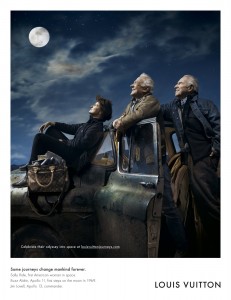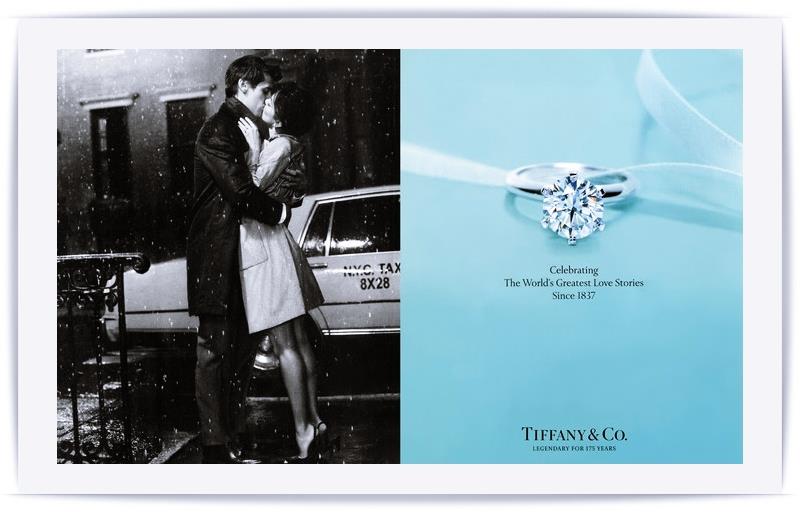 Brand storytelling has never been higher on marketers’ radar screens than it is as we near the end of 2012. Thanks to social media, every brand needs to have a story that taps into consumers’ emotions and drives a connection that leads not just to awareness, interest, and sales, but also to vocal advocacy and guardianship.
Brand storytelling has never been higher on marketers’ radar screens than it is as we near the end of 2012. Thanks to social media, every brand needs to have a story that taps into consumers’ emotions and drives a connection that leads not just to awareness, interest, and sales, but also to vocal advocacy and guardianship.
Brands can learn a lot about storytelling from luxury brands. What’s the Louis Vuitton story? The Tiffany & Co. story? The Bentley story?
These brands are extremely meaningful to the customers who pay large sums of money to buy them, use them, and flaunt them.
Luxury Brand Consumers
Consumers typically purchase luxury brands for one of three reasons:
- To prove to themselves that they’re worth the higher price tag and possible higher quality that comes with a luxury brand (self-affirmation).
- To prove to others that they’re worthy of the luxury brand’s price and quality (peer-affirmation). This could come in two forms: proof that the person belongs in the “wealthy” or “better” group as the consumer perceives it (assimilation) or proof that the person is not part of the mass consumer audience (differentiation).
- To enjoy the real or perceived superior quality, performance, or results provided by the luxury brand (appreciation and/or entitlement).
Luxury Brand Stories
With those primary motivators behind luxury brand purchase decisions, marketers can create branded stories that leverage the emotions which come with self-affirmation, peer-affirmation, and appreciation of the features and benefits that luxury brands deliver. Luxury brand stories can focus on:
- Brand history: The story of how the brand evolved, about well-known individuals, groups, or entities who use the brand, and so on can support a person’s need for self-affirmation. Leveraging the long history of an established luxury brand is a perfect example of storytelling that can be used to market and sell products. Consumers aren’t just buying a product when they purchase a luxury brand, they’re becoming part of a respected history.
- Brand performance: The story of how a luxury brand performs, meets consumer expectations, and delivers on its promise of quality and excellence are easy to tell in marketing and advertising. Just focus on consumers actually using the branded products.
- Brand availability: The story of how a luxury brand is hard to get unless a consumer is part of an exclusive group is one that has sold luxury branded products successfully for a very long time.
- Brand experience: The story of how the brand can be experienced works extremely well for marketing luxury brands. Rather than simply telling consumers how to use products, luxury brands are excellent at showing consumers how to use their products for self-affirmation, peer-affirmation, and so on.
- Brand persona: The persona of a luxury brand can be used in various ways to create brand stories. From who the brand represents to who is worthy of mingling with the brand or owning the brand are easily turned into stories for advertising.
Storytelling has never been hotter in the marketing world, and marketers don’t need to look far to find inspiration. There is much to be learned from luxury brands that have been using storytelling to drive sales for a very long time.
Images: Louis Vuitton, Tiffany & Co.
Susan Gunelius is the author of 10 marketing, social media, branding, copywriting, and technology books, and she is President & CEO of KeySplash Creative, Inc., a marketing communications company. She also owns Women on Business, an award-wining blog for business women. She is a featured columnist for Entrepreneur.com and Forbes.com, and her marketing-related articles have appeared on websites such as MSNBC.com, BusinessWeek.com, TodayShow.com, and more.
She has over 20 years of experience in the marketing field having spent the first decade of her career directing marketing programs for some of the largest companies in the world, including divisions of AT&T and HSBC. Today, her clients include large and small companies around the world and household brands like Citigroup, Cox Communications, Intuit, and more. Susan is frequently interviewed about marketing and branding by television, radio, print, and online media organizations, and she speaks about these topics at events around the world. You can connect with her on Twitter, Facebook, LinkedIn, or Google+.



